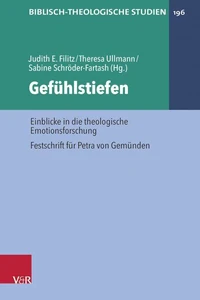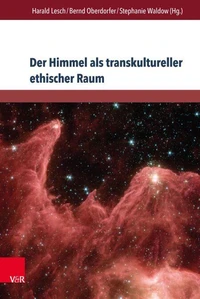Lehrverantwortung – lutherisch / Doctrinal Responsibility – a Lutheran Perspective. Eine Studie des Ökumenischen Studienausschusses des Deutschen Nationalkomitees des Lutherischen Weltbundes / A Study by the Ecumenical Study Committee of the German National Committee of the Lutheran World Federation
Par : ,Formats :
Disponible dans votre compte client Decitre ou Furet du Nord dès validation de votre commande. Le format PDF est :
- Compatible avec une lecture sur My Vivlio (smartphone, tablette, ordinateur)
- Compatible avec une lecture sur liseuses Vivlio
- Pour les liseuses autres que Vivlio, vous devez utiliser le logiciel Adobe Digital Edition. Non compatible avec la lecture sur les liseuses Kindle, Remarkable et Sony
 , qui est-ce ?
, qui est-ce ?Notre partenaire de plateforme de lecture numérique où vous retrouverez l'ensemble de vos ebooks gratuitement
Pour en savoir plus sur nos ebooks, consultez notre aide en ligne ici
- Nombre de pages234
- FormatPDF
- ISBN978-3-374-07483-9
- EAN9783374074839
- Date de parution21/07/2023
- Protection num.Digital Watermarking
- Taille1 Mo
- Infos supplémentairespdf
- ÉditeurEvangelische Verlagsanstalt
Résumé
Was heißt »Lehre« in den lutherischen Kirchen? Woran orientiert sie sich? Wie entsteht Verbindlichkeit? Welche Instanzen und Prozesse der Lehrbeurteilung haben sich entwickelt? Wer kann Lehrfragen wie entscheiden? Die vorliegende Studie stellt zunächst gegenwärtige Strukturen der Lehrverständigung im deutschen Luthertum dar und entfaltet exemplarisch historische Fallstudien lutherischer Lehrverantwortung (Bultmann-Kontroverse; Frauenordination; Apartheid; Rechtfertigungslehre).
Ein zweiter Teil skizziert die Entstehung lutherischer Lehr- und Bekenntnisnormen im 16. Jh. und verfolgt im historischen Längsschnitt die Entwicklung von Konzepten kirchlicher Lehrverbindlichkeit bis in die Gegenwart. Abschließende Thesen erschließen die Relevanz lutherischer Lehrverantwortung für die ökumenischen Dialoge. [Doctrinal Responsibility - a Lutheran Perspective] What does »doctrine« mean in Lutheran churches? What is it based upon? How is it made binding? What instances and processes of doctrinal judgment have developed? Who can decide doctrinal questions and how? This study first presents current structures of doctrinal understanding in German Lutheranism and unfolds exemplary historical case studies of Lutheran doctrinal responsibility (Bultmann controversy; ordination of women; apartheid; doctrine of justification).
A second part outlines the emergence of Lutheran doctrinal and confessional norms in the 16th century and traces the development of concepts of ecclesial doctrinal commitment in a historical cross-section up to the present. Concluding theses explore the relevance of Lutheran doctrinal responsibility for ecumenical dialogues.
Ein zweiter Teil skizziert die Entstehung lutherischer Lehr- und Bekenntnisnormen im 16. Jh. und verfolgt im historischen Längsschnitt die Entwicklung von Konzepten kirchlicher Lehrverbindlichkeit bis in die Gegenwart. Abschließende Thesen erschließen die Relevanz lutherischer Lehrverantwortung für die ökumenischen Dialoge. [Doctrinal Responsibility - a Lutheran Perspective] What does »doctrine« mean in Lutheran churches? What is it based upon? How is it made binding? What instances and processes of doctrinal judgment have developed? Who can decide doctrinal questions and how? This study first presents current structures of doctrinal understanding in German Lutheranism and unfolds exemplary historical case studies of Lutheran doctrinal responsibility (Bultmann controversy; ordination of women; apartheid; doctrine of justification).
A second part outlines the emergence of Lutheran doctrinal and confessional norms in the 16th century and traces the development of concepts of ecclesial doctrinal commitment in a historical cross-section up to the present. Concluding theses explore the relevance of Lutheran doctrinal responsibility for ecumenical dialogues.
Was heißt »Lehre« in den lutherischen Kirchen? Woran orientiert sie sich? Wie entsteht Verbindlichkeit? Welche Instanzen und Prozesse der Lehrbeurteilung haben sich entwickelt? Wer kann Lehrfragen wie entscheiden? Die vorliegende Studie stellt zunächst gegenwärtige Strukturen der Lehrverständigung im deutschen Luthertum dar und entfaltet exemplarisch historische Fallstudien lutherischer Lehrverantwortung (Bultmann-Kontroverse; Frauenordination; Apartheid; Rechtfertigungslehre).
Ein zweiter Teil skizziert die Entstehung lutherischer Lehr- und Bekenntnisnormen im 16. Jh. und verfolgt im historischen Längsschnitt die Entwicklung von Konzepten kirchlicher Lehrverbindlichkeit bis in die Gegenwart. Abschließende Thesen erschließen die Relevanz lutherischer Lehrverantwortung für die ökumenischen Dialoge. [Doctrinal Responsibility - a Lutheran Perspective] What does »doctrine« mean in Lutheran churches? What is it based upon? How is it made binding? What instances and processes of doctrinal judgment have developed? Who can decide doctrinal questions and how? This study first presents current structures of doctrinal understanding in German Lutheranism and unfolds exemplary historical case studies of Lutheran doctrinal responsibility (Bultmann controversy; ordination of women; apartheid; doctrine of justification).
A second part outlines the emergence of Lutheran doctrinal and confessional norms in the 16th century and traces the development of concepts of ecclesial doctrinal commitment in a historical cross-section up to the present. Concluding theses explore the relevance of Lutheran doctrinal responsibility for ecumenical dialogues.
Ein zweiter Teil skizziert die Entstehung lutherischer Lehr- und Bekenntnisnormen im 16. Jh. und verfolgt im historischen Längsschnitt die Entwicklung von Konzepten kirchlicher Lehrverbindlichkeit bis in die Gegenwart. Abschließende Thesen erschließen die Relevanz lutherischer Lehrverantwortung für die ökumenischen Dialoge. [Doctrinal Responsibility - a Lutheran Perspective] What does »doctrine« mean in Lutheran churches? What is it based upon? How is it made binding? What instances and processes of doctrinal judgment have developed? Who can decide doctrinal questions and how? This study first presents current structures of doctrinal understanding in German Lutheranism and unfolds exemplary historical case studies of Lutheran doctrinal responsibility (Bultmann controversy; ordination of women; apartheid; doctrine of justification).
A second part outlines the emergence of Lutheran doctrinal and confessional norms in the 16th century and traces the development of concepts of ecclesial doctrinal commitment in a historical cross-section up to the present. Concluding theses explore the relevance of Lutheran doctrinal responsibility for ecumenical dialogues.




